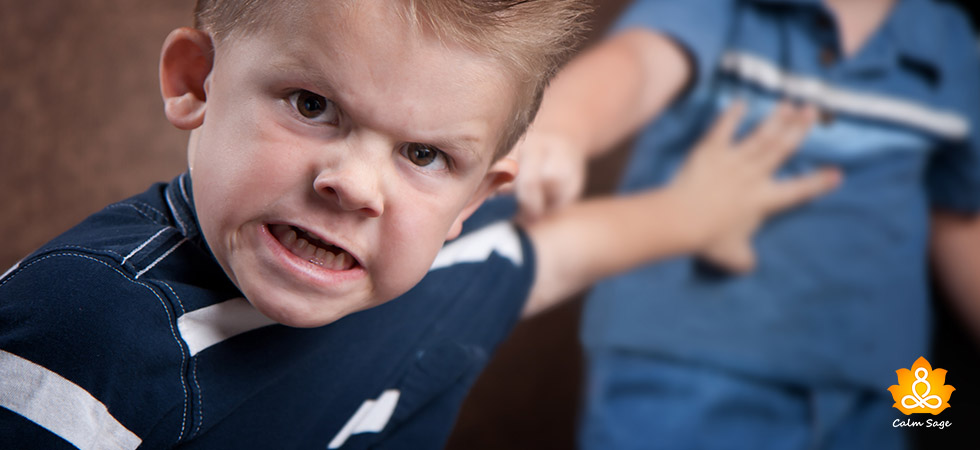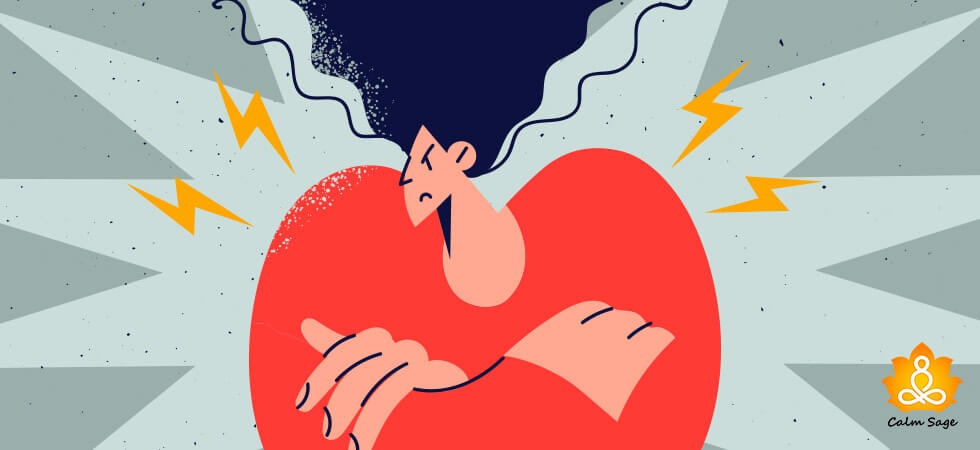Aggression In Children: Strategies On How To Stop Aggressive Behavior In Toddlers
Toddlers acting out of behavior is normal, after all, they are learning new skills but if the aggressive behavior in your toddler is causing troubles, then it is worrisome. In this article, we’ll explore what is aggression in children and what are some strategies on how to stop aggressive behavior in toddlers

The age between one and three is a challenging and exciting time for parents and children alike. Toddlers, at that age, become aware that there are other people and things around them other than their parents. This eagerness to explore the outside world can be tough on the parents.
While toddlers are excited, they have little to no self-control and are still learning skills like patience. With no self-control, a toddler may get angry and even frustrated when things are not going their way. In such situations, a child may get aggressive either with words or with their actions.
And yes, while this behavior is normal for a toddler, if not curbed could turn worrisome. Aggression in toddlers, if not controlled, could affect their ability to control anger in later years.
Cause of Aggression In Children

Aggression in children is not only because they lack self-control or patience. Sometimes, aggression in toddlers can be because of some underlying psychological or medical problems. Toddlers find it difficult to express their feelings healthily so they usually revert to actions such as biting, hitting, and screaming.
To a toddler, the world is a new and exciting place but everything is bigger than them. They crave independence but they don’t know how to express themselves. This frustration can mask aggression in toddlers.
Other causes of aggressive behavior in toddlers might include:
1. Mood disorders: Conditions such as bipolar disorder, mania, impulsiveness, etc can cause a toddler to act out.
2. Psychotic disorder: Conditions such as childhood schizophrenia or paranoia can also cause aggression.
3. Developmental disorders: Conditions such as autism or other intellectual or cognitive impairment can also cause the children to become aggressive.
4. Impulsive actions: ADHD or other impulsive behavior disorders may also increase aggression in children.
5. Trauma: If a toddler goes through a traumatic event such as an accident or a fall with no idea how to deal with such a situation can also cause them to act aggressively.
Signs Of Aggression In Toddlers

You need to keep an eye out for these signs of aggression in toddlers:
- Your child is acting out of behavior such as breaking things or being intrusive.
- Your child is hitting, shoving, or pushing other children or even you.
- Your child is acting aggressively out of the blue or without reason.
- Your child acts aggressively in pretend plays or activities.
- Your child is unable to interact positively with others.
- Your child’s schoolwork and learning are affected by them acting out of normal.
If your child is showing signs of aggressive behavior that is causing them troubles at school or home, please contact a child counselor to get a proper diagnosis to learn the cause of their behavior.
Dealing With Toddler Aggression

Aggressive behavior in children can seriously affect their ability to learn new skills and their overall development. Here are some strategies to help you understand how to stop aggressive behavior in toddlers:
1. React Immediately
Waiting for a good time to address your toddler’s actions is not going to have the same effect as reacting immediately will. A toddler’s attention span isn’t great and they may have forgotten about their behavior by the time you get to address it. Responding immediately in such situations is the best course of action.
2. Be Calm And Firm
At a young age, a toddler doesn’t understand punishment. They don’t understand that aggression is wrong. Remember, they are expressing their feelings as they seem fit. In such a situation, you need to stay calm, not get angry, or lose patience. Be firm in making your displeasure known but be calm as well when explaining to your toddler that their actions were wrong and unjust.
3. Acknowledge Their Feelings
Let your toddler know that you hear them and understand the reason for their aggression. Acknowledging your toddler’s feelings will go a long way to help them calm down. Instead of ignoring their actions, let them know that you hear them and that their feelings are valid but aggression to express them is wrong.
4. Praise Good Behavior
When your child behaves properly, without getting aggressive, praise them. Let them know that they did a good job without getting aggressive. This kind of motivation will make them act less aggressively in the future.
5. Understand Their Triggers
Many a time, a toddler will express their hunger or dissatisfaction with something via acting aggressively. Understanding what triggers your child’s aggressive behavior can help you learn what to avoid to curb their behavior.
Read: Selective Mutism In Children: What Is It & How Can You Help Your Child
6. Find Alternative Solution
Feelings, when bottled, can explode in the form of aggression. Find alternative ways to help your child release the frustration and anger. For example; encourage them to participate in sports after school or teach them yoga to help release the stress.
7. Don’t Get Aggressive
A child learns what their parents do. Your toddler will imitate your actions – good and bad. Never show your aggression toward your toddler by hitting them. This will make them feel like hitting is not bad and that it’s okay to hit to make a point.
8. Keep Making An Effort
Just because your child is acting aggressively does not mean that they cannot learn empathy and compassion. With constant effort on your part, you can teach your child skills like compassion, empathy, and patience. Don’t stop making an effort and don’t give up.
Related: 15 Psychology Based Self-Regulation Techniques For Adults & Children
Talk To A Professional

Acting out of normal is somewhat normal in toddlers but if that turns into aggressive behavior, it can be harmful to their overall development and health. Addressing your toddler’s aggressive behavior is important.
A child counselor or psychologist can help you understand more about your child’s actions and what strategies or coping mechanisms you can teach your child to help them deal with aggression.
Dealing with aggressive behavior in toddlers can be challenging but with the right professional help, it can be possible. I hope this article helped you understand aggression in children and how to stop aggressive behavior in toddlers.
For more, you can always contact us at info@calmsage.com or follow us on social media.
Until then, take care and stay safe.




















